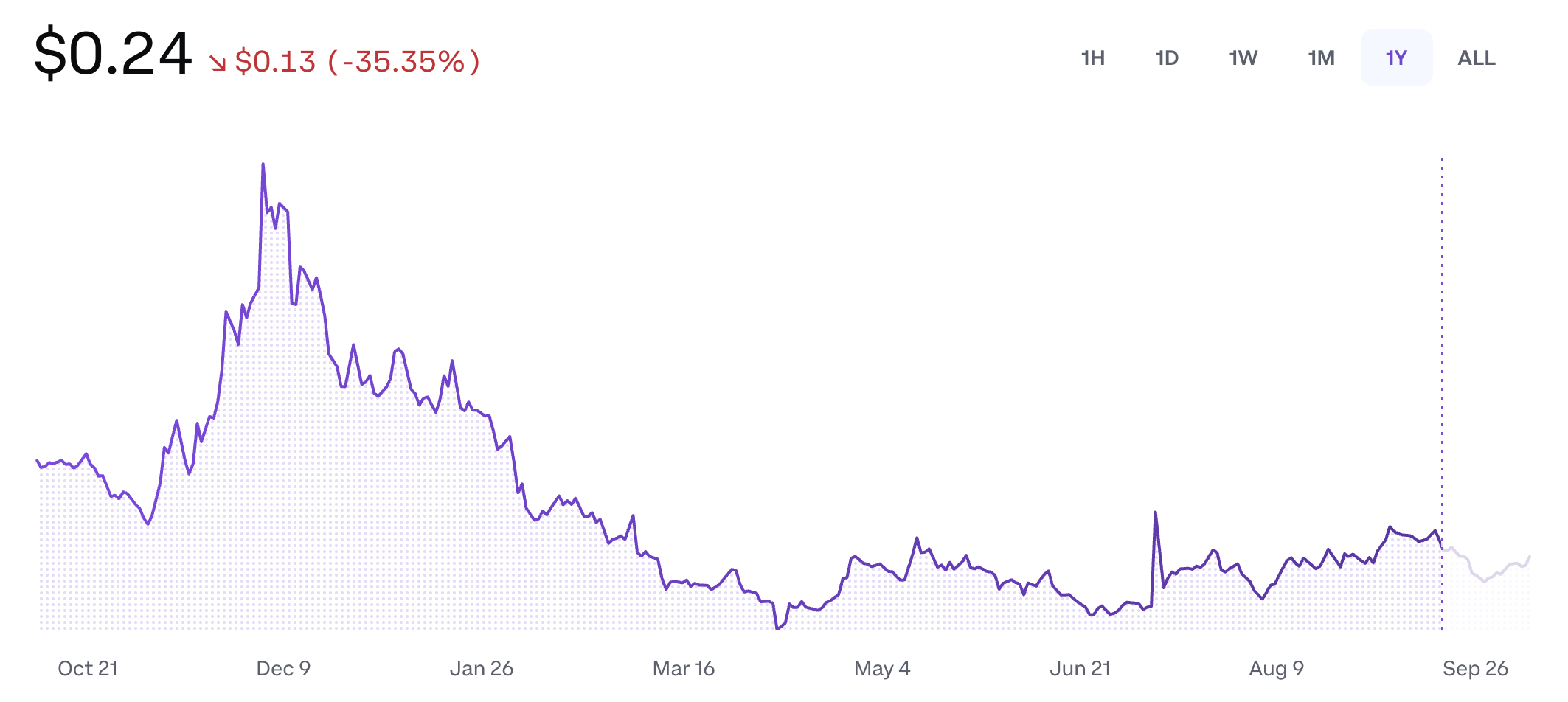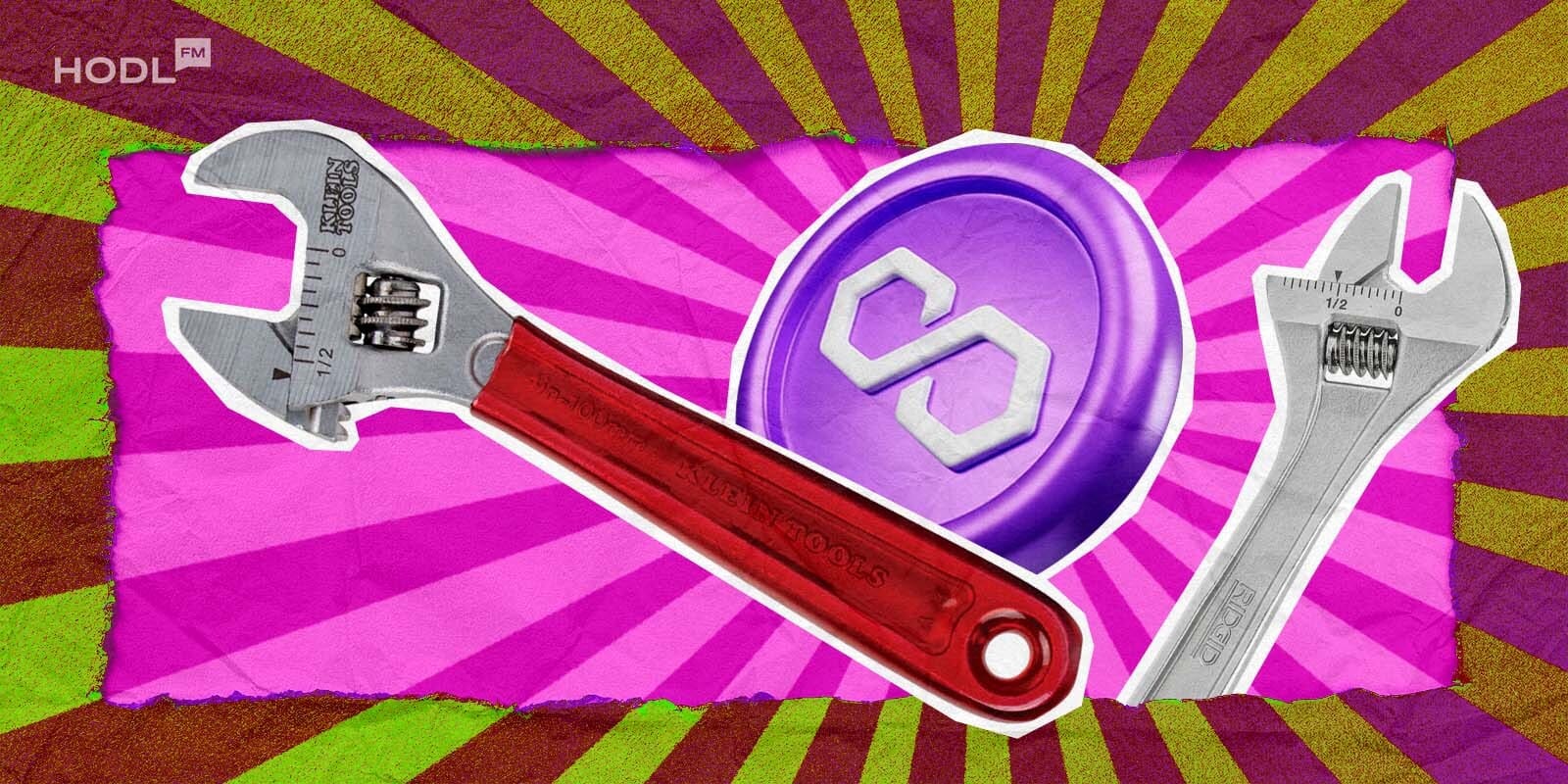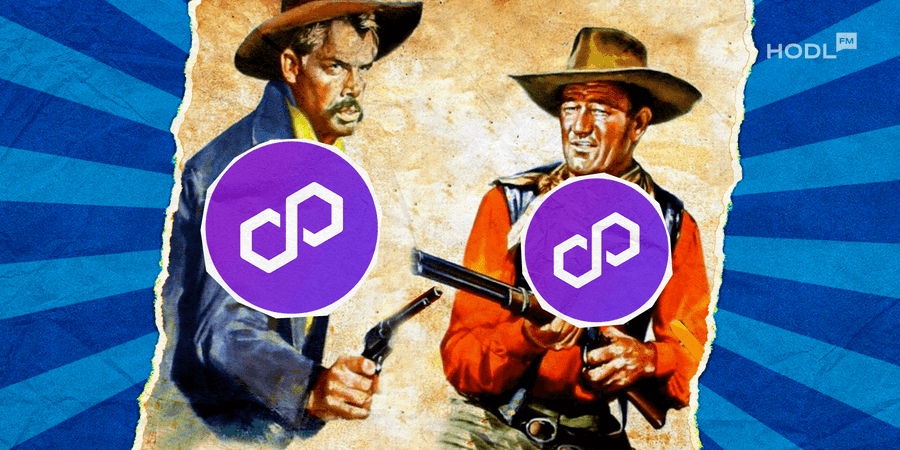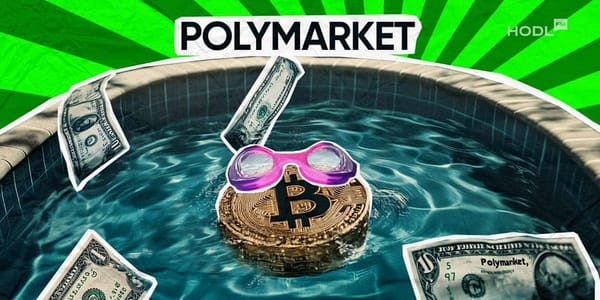A new governance proposal is stirring debate inside the Polygon (POL) ecosystem as community members rally behind a plan to overhaul the network’s tokenomics. The draft, submitted by activist investor Venturefounder, advocates for eliminating Polygon’s 2% annual inflation and creating a treasury‑funded buyback or burn system aimed at reviving the token’s value.
Proposal targets inflation and confidence gap
Under the current framework, Polygon issues roughly 200 million new POL tokens each year, an approach the author argues has weighed heavily on price performance. The token has dropped 35% in the past 12 months, badly underperforming peers even amid renewed optimism in Bitcoin and Ethereum markets.

“These changes are intended to align supply with Polygon’s current reality and restore investor trust,” Venturefounder wrote on the project’s governance forum.
The proposal, officially titled “Revision of POL Tokenomics: Elimination of 2% Inflation and Introduction of Treasury Buyback/Burn Policy”, outlines two main options:
- Setting inflation to zero immediately, establishing a fixed supply model; or
- Tapering inflation by 0.5% per quarter until it reaches zero.
In tandem, at least 20% of Polygon Treasury’s quarterly net inflows would be used to repurchase or burn POL, with results reported through an on‑chain dashboard.
Polygon leadership signals openness to dialogue
The post has drawn attention from Polygon Labs executives. Co‑founder Brendan Farmer and CEO Marc Boiron acknowledged the initiative publicly, suggesting a willingness to consider community‑driven economic reforms.
Opponents, however, cautioned that removing inflation could complicate validator‑reward funding, currently supported by new emissions introduced during the 2024 token migration from MATIC to POL.
The forum remains active as validators, developers, and investors debate how to balance token value with long‑term network security.
Market backdrop: strong tech, weak token
Polygon’s position as one of Ethereum’s earliest and most successful scaling layers has come under pressure from Arbitrum, Optimism, and Base, which have gained traction among developers and liquidity providers.
Despite the headwinds, Polygon continues to register robust developer engagement, particularly in Latin America, where recent data show the chain remains preferred for decentralized‑application (dApp) deployment in Mexico, Brazil, Peru, and Bolivia.
The network also maintains a growing footprint in real‑world asset (RWA) tokenization. Last month, infrastructure platform AlloyX launched a tokenized money market fund on Polygon, adding to broader on‑chain activity that includes over $2 billion in cumulative NFT sales.
Investor frustration and cross‑chain comparisons
Venturefounder’s social‑media campaign accompanying the proposal has drawn more than 25,000 views, amplifying community frustration. The investor compared POL to BNB, Avalanche (AVAX), and Ethereum (ETH), all of which employ deflationary or capped‑supply mechanics, and argued that adopting a similar strategy could elevate POL’s price equilibrium by two‑to‑three times under constant demand conditions.
“BNB burns, ETH has EIP‑1559, AVAX has emission control—Polygon needs modern economics to stay competitive,” the post asserted.
The road ahead
The measure is still under discussion on Polygon’s governance forum (status: Draft). If consensus forms, the timeline proposed by Venturefounder outlines an on‑chain vote in Q1 2026, followed by implementation and transparent buyback tracking starting mid‑year.
As the proposal gains momentum, analysts say its outcome will signal how far the Polygon community is willing to go to stabilize value and reassert its place among next‑generation layer‑2 networks.

Disclaimer: All materials on this site are for informational purposes only. None of the material should be interpreted as investment advice. Please note that despite the nature of much of the material created and hosted on this website, HODL FM is not a financial reference resource, and the opinions of authors and other contributors are their own and should not be taken as financial advice. If you require advice. HODL FM strongly recommends contacting a qualified industry professional.





